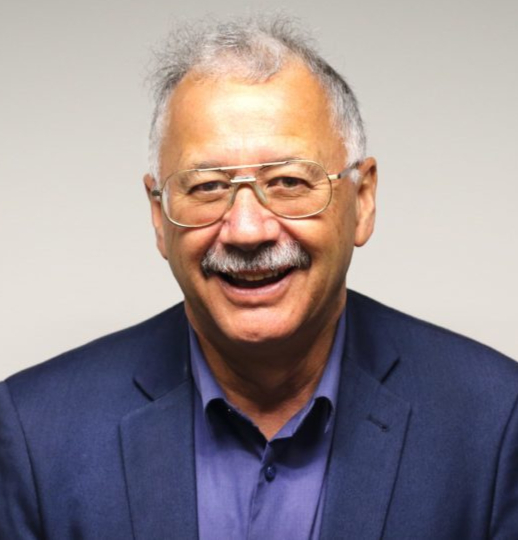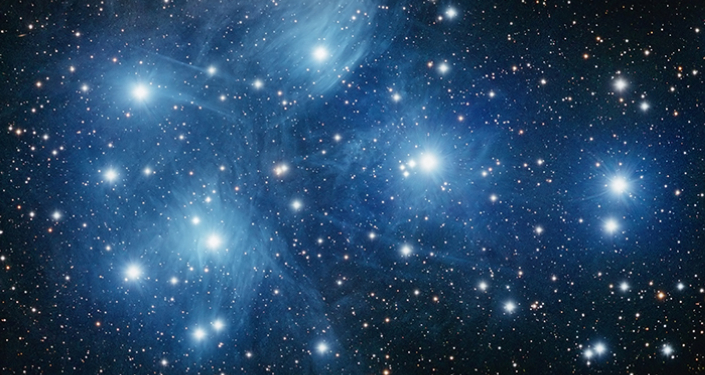Interview by Nick Everitt MIML
In mid-winter, when the Pleiades star cluster appears at night, it signals the beginning of the Māori New Year. It is a period marked with celebrations of life, reflections of the past and anticipation of the year to come.
For Robin Hapi CNZM FIML, Matariki is about togetherness and forging a strong sense of whānau and community. Hapi is a renowned leader whose knowledge and experience in the education, not-for-profit and economic sectors has been invaluable to organisations such as Callaghan Innovation, New Zealand Trade and Enterprise and Te Wānanga o Ruakawa. Currently, he is the chair of the Māori Economic Development Advisory Board, a board member of Te Wānanga o Raukawa Foundation, Worksafe NZ and Kāinga Ora – Homes and Communities, which aims to address homelessness and housing affordability for New Zealanders.
IML ANZ’s Nick Everitt sat down with Hapi to get his thoughts on the lessons that Matariki can teach leaders, even after the festivities are over.
Nick Everitt: What does Matariki mean to you?
Robin Hapi: Matariki is an opportunity for us to sit down and to reflect on the period that’s gone by and remember those who’ve left our shores and departed.
It’s also a time to think about what’s ahead and to plan for it. Historically, it was a time when our tūpuna thought about planting, how to prepare for what they anticipate is ahead and ensure sustainability for their families, their whānau. They tried to ensure that productivity levels were up.
More and more, Matariki is becoming an opportunity for Māori to share their own kōrero or stories. And not every story about Matariki is the same. Even the name Matariki. Some people will say it means ‘small eyes’. And some people say it means the ‘eyes of gods’ – mata ariki. But what matters is knowing what it stands for. That’s the opportunity for you and your family to look back and plan forward. And it’s about ensuring the sustainability of your whānau and your environment.

NE: Have you seen business leaders apply this same lens to their organisations during this time – reflecting on the past and thinking of the future?
RH: Māori businesses ask this question of themselves every year: “What are we here for?” For many, the answer is to ensure the sustainability of their business. They’re in business to stay in business. We should also make sure that we do well for the sake of those relying on us. Our communities should benefit, whether that’s in the shape of dividends, or products, or even employment. So, some businesses look at social and community goals as a part of the business that ensures their continued vibrancy.
So, it’s not too different from what families do at home, reflecting on the past, the impact on their families, and planning for the future.
As leaders, we should try and understand where we’ve gone wrong, and if we have, why. Then think about how we can remediate that. And then we can look forward to where we want to be in a year or even in five years.
NE: What else should leaders reflect on when they lay out their plans for the business?
RH: No business is an island. You’ve got to consider the environment that continues to swirl around you. I think more businesses are starting to reflect, not only on their environmental impact but the way that they conduct their business. And when I talk about the environment, I don’t just mean the waterways and whenua and the air. There are also people, their dreams, their expectations, their health and wellbeing. It’s not just a money tree. So, business, community, environment, aspirations, they all go together. And they’ve all got to find ways of being compatible with each other to achieve an outcome that hopefully benefits all.
NE: The government announced the Wellbeing Budget last year. What message do you think this sends to the leadership community?
RH: The Wellbeing Budget was a definite signal to our community about the importance of people. It challenged business to act in a way that’s market-competitive but also looks after the wellbeing of people. That can be tough when, for many, the definition of success comes down to the bottom line. So, success should also include a business’ contribution to sustainability: for their business, their people and their communities. Business needs to be continuously looking at whether they’ve got it right. Their values must work in concert with community aspirations. Their goals should include building better communities and encouraging collaboration.
NE: Right now, many companies are facing different challenges as a result of the pandemic. What can leaders do to help improve business, especially when budgets are tight?
RH: Rather than asking, “How are we going to do better with what we’ve got?”, we should think about how are we going to engage better with our people. They are the ones who will help us make these decisions and contribute to the sustainability of our business. And we must make sure that the choices we make in this environment, are informed, are aware, are involved. If you can do that, then you get a better understanding of when the tide turns, and the opportunities present themselves. You’ll have a far greater degree of support from the people who will help you grow your business and become more successful.
Courage is also important. Leaders should believe in what they can do, be willing to get out there and do it. Don’t just talk the talk. Walk the walk, as well.
Nick Everitt is IML ANZ’s Business Manager in New Zealand. Contact Nick to chat about Membership and other exciting leadership skills development activities in the land of the long white cloud, Aotearoa.


